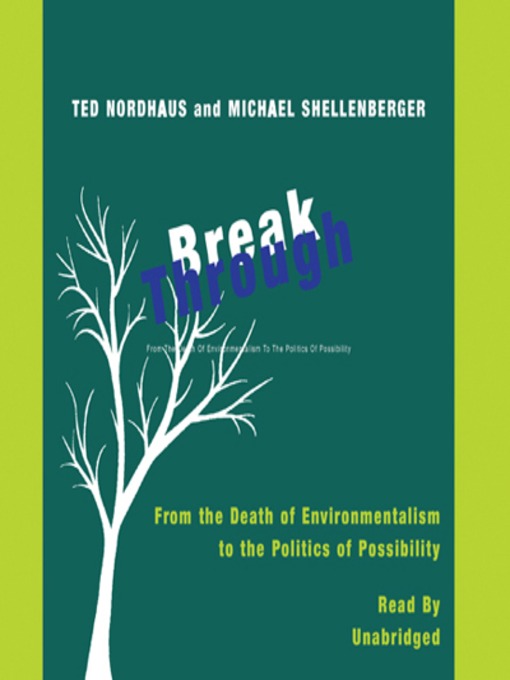Environmental insiders Michael Shellenberger and Ted Nordhaus triggered a firestorm of debate with their self-published essay, "The Death of Environmentalism." In this eagerly anticipated follow-up, the authors expand upon their argument that the paradigms driving the environmental movement and much of liberal politics are outdated and ineffective. A politics centered on restricting human growth and development does not resonate with the primary concerns of either the developing world or insecure modern Americans—nor can it solve a problem as large and complex as global warming. What is needed instead, they argue, is a new kind of development that integrates ecological, social, and economic change, motivated by an optimistic new vision of the future. By shifting from a politics of fear and limits to one of expansive possibility, we can galvanize American creativity and enterprise to tackle our most pressing challenges.
- Available now
- New eBook additions
- New kids additions
- New teen additions
- Lonely Planet Travel Guides - Always Available
- Most popular
- Try something different
- Always Available eBooks - Classics
- New Fiction eBooks
- New Nonfiction eBooks
- See all
- Available now
- New audiobook additions
- New kids additions
- New teen additions
- Most popular
- Try something different
- New Fiction Audiobooks
- New Nonfiction Audiobooks
- See all
- News and Politics
- Celebrity Magazines
- Hobbies & Crafting
- Home & Garden
- Let's Get Cooking!
- Kids & Teens Magazines
- Revistas en español (Spanish Language Magazines)
- All Magazines
- See all


